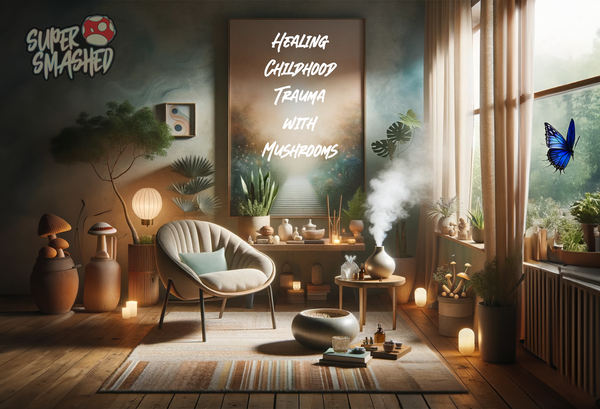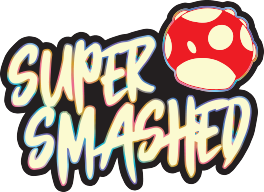
Exploring the Healing Powers: Entheogenic Compounds and Childhood Trauma Recovery
Introduction: Childhood trauma is a pervasive issue that leaves lasting scars on the minds and lives of many. Traditional therapeutic methods offer varying degrees of relief, but recent scientific explorations into entheogenic compounds, particularly magic mushrooms (Psilocybin), have opened new possibilities for healing. This blog delves into the scientific research and emerging evidence on how magic mushrooms can aid in healing childhood trauma, with a focus on their therapeutic potential, mechanisms of action, and considerations for use.
Understanding Childhood Trauma Childhood trauma, ranging from physical abuse to emotional neglect, can have long-lasting effects on psychological and emotional well-being. It often manifests in adulthood as anxiety, depression, and other mental health disorders. The complexity of treating such deep-rooted issues often makes recovery a challenging path.
Mushrooms: An Overview Magic mushrooms contain Psilocybin, a naturally occurring psychedelic compound. Traditionally used in spiritual and cultural ceremonies, they have recently gained attention in the scientific community for their potential therapeutic effects.
The Science Behind the Healing Research indicates that Psilocybin can 'reset' and 'reconnect' the brain. A study by Carhart-Harris et al. (2016) in the journal "The Lancet Psychiatry" showed that Psilocybin could decrease blood flow to the amygdala, the part of the brain associated with emotional responses, including fear and stress. This decrease may lead to reduced symptoms of trauma-related disorders.
Clinical Trials and Evidence Several clinical trials have explored Psilocybin's effects on various mental health conditions. For instance, a pilot study by Grob et al. (2011) in the "Archives of General Psychiatry" found that Psilocybin-assisted therapy could lead to improved mood and decreased anxiety in patients with advanced-stage cancer. These findings open possibilities for treating anxiety stemming from traumatic childhood experiences.
Mechanisms of Action Psilocybin works by activating serotonin receptors, particularly the 5-HT2A receptor, which plays a crucial role in regulating mood, cognition, and perception. The compound's ability to induce a 'mystical experience' is also believed to be central to its therapeutic effects, offering profound insights and emotional release.
Personal Transformation and Insights Anecdotal evidence and qualitative studies, like those published in the "Journal of Psychopharmacology," highlight personal transformation and significant emotional insights in individuals who have undergone Psilocybin therapy. These experiences often lead to a re-evaluation of past trauma and a new perspective on self and others.
Safety and Side Effects While Psilocybin is generally considered safe, it is not without risks and side effects. It's essential to consider set (the mental state of an individual), setting (the physical and social environment), and professional guidance when using these compounds for therapeutic purposes.
Legal and Ethical Considerations Currently, Psilocybin remains illegal in many parts of the world, classified as a Schedule I drug. However, ongoing research and shifts in public perception are leading to changes in legal status, particularly for medicinal use. It's crucial to stay informed about the legal framework and ethical considerations.
Integrating with Traditional Therapy For many, the best approach is an integrated one, combining Psilocybin-assisted therapy with traditional psychotherapy methods. This combination can provide a comprehensive treatment that addresses both the symptoms and underlying causes of trauma.
Future Directions and Research Ongoing studies continue to explore and validate the therapeutic potential of magic mushrooms. Future research aims to establish standardized dosing, understand long-term effects, and identify which types of trauma are most amenable to Psilocybin therapy. Journals such as "Neuropharmacology" and "The American Journal of Psychiatry" frequently publish studies in this growing field.
Conclusion Magic mushrooms offer a promising new avenue for healing childhood trauma, with scientific research backing their potential. However, they are not a panacea and should be considered part of a broader, integrated approach to mental health. As research continues, and legal and societal attitudes evolve, we may be on the cusp of a new era in trauma therapy.
References:
- Carhart-Harris, R. L., et al. (2016). Psilocybin with psychological support for treatment-resistant depression: an open-label feasibility study. The Lancet Psychiatry, 3(7), 619-627.
- Grob, C. S., et al. (2011). Pilot study of psilocybin treatment for anxiety in patients with advanced-stage cancer. Archives of General Psychiatry, 68(1), 71-78.
- Journal of Psychopharmacology: Various articles on Psilocybin and mental health.
- Neuropharmacology: Research articles on the effects of psychedelics on the brain.
- The American Journal of Psychiatry: Studies on psychedelic-assisted psychotherapy.
